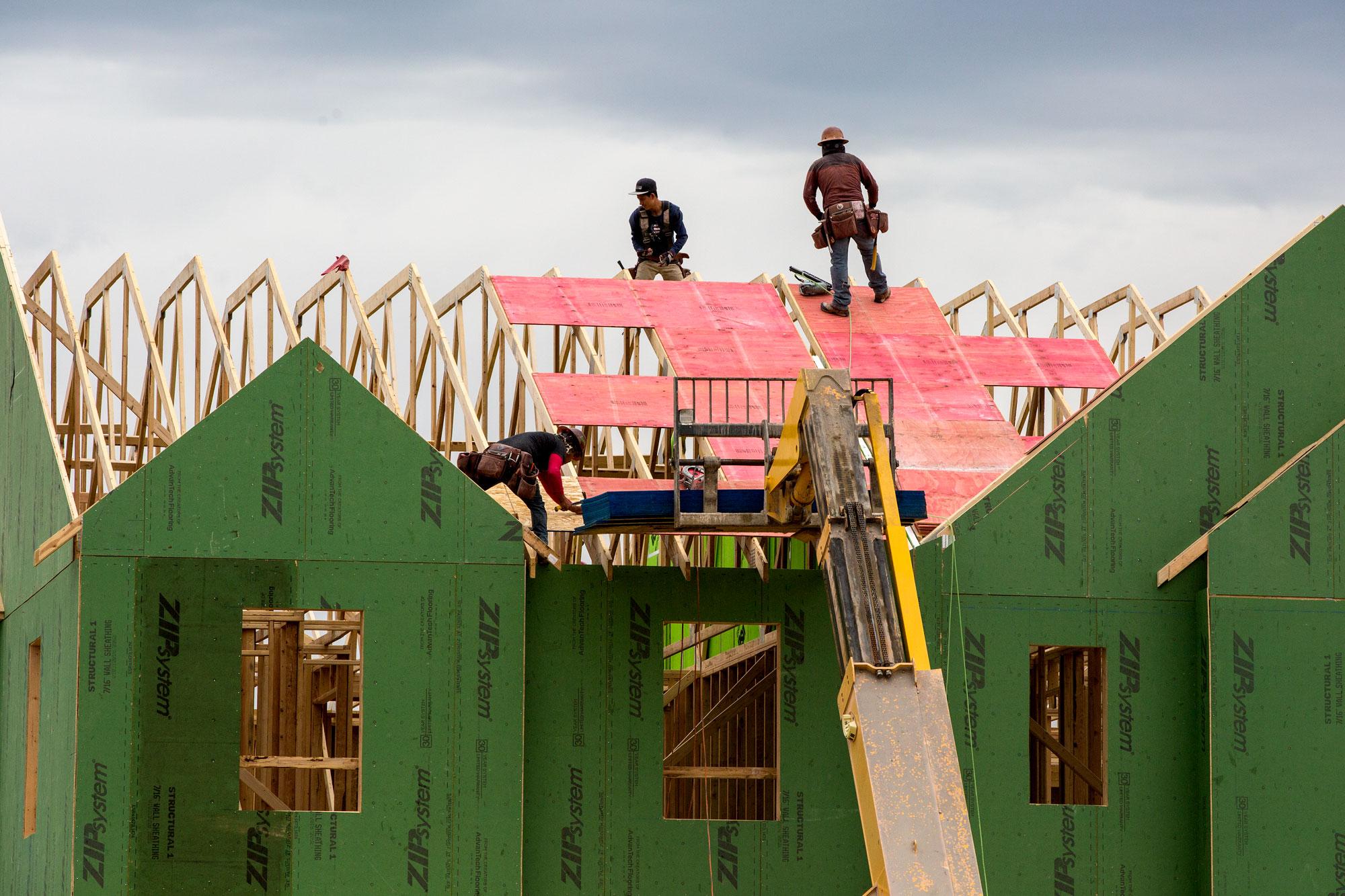
For the first time in a long time, Denver’s bustling real estate market has slowed. The top line: The steep rise in prices is slowing and there are more houses on the market.
That’s making it easier for buyers like Philip Wang, who was looking for a bigger house for his growing family this spring.
Wang, a marketing operations manager for a medical device software company, lives in a fairly large house in Arvada — more than 2,000 square feet — but the bad layout made it feel small.
“A wife, kid and a dog, and sort of getting a little cramped,” he said.
He and his wife found the place they wanted in Westminster, and they pulled off a feat that used to be almost impossible: they sold a home and bought another at the same time.
“We thought this can fall through because of X, Y, and Z on either side, so there was that level of stress,” said Wang.
But it worked out.
In previous years, demand for homes was so intense that it was easy to sell a home, but difficult to find one to move into around metro Denver.
That’s starting to change. In April, the unofficial start of the home buying season, there were 1,852 more homes on the market than the same time in 2018, according to the Denver Metro Association of Realtors. That’s a 36 percent increase and the most active listings in five years.
Other U.S. cities with busy housing markets saw similar growth: Active listings rose more than 18 percent in the California Bay Area and more than doubled in Seattle.

Wang’s real estate agent Erin Brumleve, with Keller Williams, said new home construction is also adding to supply. As a result, buyers have more options and prices have stabilized.
“Right now, we’re looking at a more normal, sustainable appreciation rate of 2 to 5 percent [a year],” Brumleve said.
That’s down from the double-digit price growth of a few years ago in Denver.
But as the supply grows, demand has fallen in Denver. The number of sales dropped 7 percent in April. This is a phenomenon playing out across the country, as buyers’ wages fail to keep up with prices.
“I think a lot of what’s happening is that we’re just hitting an affordability ceiling,” said Ralph McLaughlin, deputy chief economist with CoreLogic, a real estate research firm. “Prices can only rise so much before it’s hard for your average household to afford a home.”
Wage growth has finally started to rise in Colorado, but it hasn’t kept pace with real estate inflation. Denver is the most expensive non-coastal market in the country. Average prices hit a new all-time high in April: $553,371 for a single family home, according to Denver Metro Association of Realtors.
Justin Knoll, a longtime metro Denver real estate agent, said it’s “brutal out there under $400,000 and the stuff you’re finding at $400,000 needs a lot of work.”
“At that entry level market, people can’t afford to put a lot of work into it,” he said.
As a result, many of those buyers are stuck on the sidelines.
For buyers who can afford more expensive properties, there are options. That wasn’t the case in previous years, Knoll said, when supply was at or near record lows and demand was frenzied.
“You had to make a decision on the hood of the car right now,” Knoll said. “If you’re going to sign this contract or make an offer on a property, you had to decide right then, because five other people, at least, we're doing the same. But now it’s like, ‘let me think about this overnight, let me talk to my lender again, let me talk to my financial planner.’”

For some sellers, that has been a tough transition.
“We do see sellers start to panic a little bit after a couple of weeks on the market if they don’t have it done. If they don’t have a contract they start to flip out,” he said.
Some sellers still act like they’re in Denver’s old market, thinking they can set high prices and force bidding wars.
For some, it’s still possible if the property is in good shape and in a nice neighborhood. While things might be moving slower in Denver’s market, it’s still a fast-paced environment. Median days on market is just 12, a rate real estate agents say is still very fast — although it’s twice as long as it used to be.
For buyers like Philip Wang, that means buying and selling a house at the same time is still a touchy and complex transaction that requires planning ahead.
“So we didn’t just up and one day decide we’re gonna, ‘let’s move to a bigger house,’” he said. “We planned this for probably a good three to five months in advance.”
His agent Erin Brumleve said she told Wang and his wife they needed to list their home when it was likely to sell, in early spring, and be ready to buy quickly.
“And they listened to us and they were successful, so we appreciate that,” said Brumleve.
Even as the market slows, she joked, you still have to listen to your agent to make the most of it.








